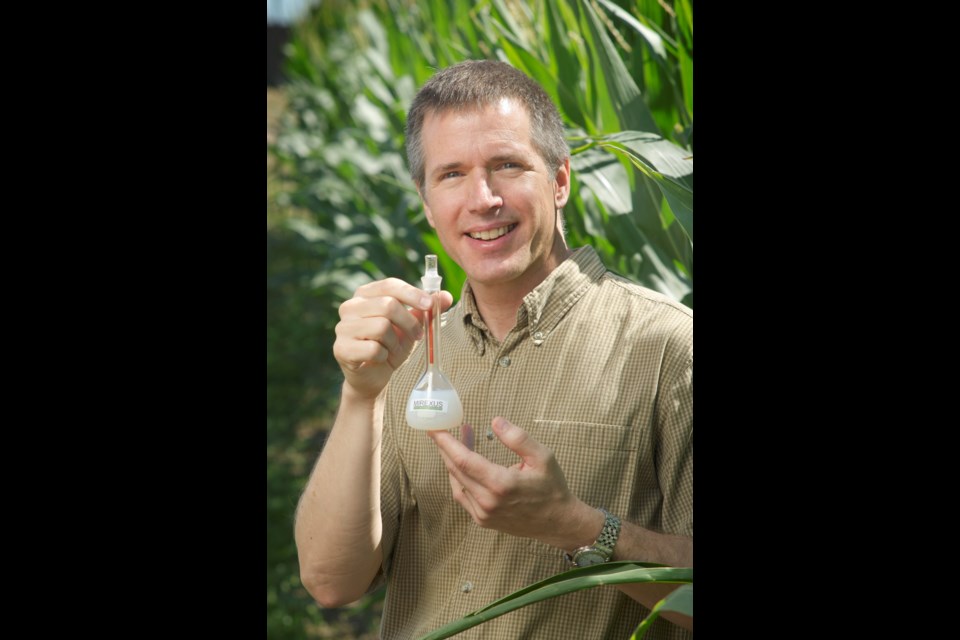What started as an accidental discovery in a University of Guelph physics lab has turned into a leading-edge international business that is about to create more than 70 jobs and develop an office, laboratory and manufacturing facility in Guelph’s industrial park, with a $1 million investment from Ottawa.
On Friday, Guelph MP Lloyd Longfield announced the new support for start-up company Mirexus Biotechnologies, which broke ground in September for a 12,000 square-foot facility on a four-acre industrial lot at the corner of Laird Road and Downey Road.
The federal contribution, made through Agriculture and Agri-Food Canada, will be dedicated to the manufacturing portion of the facility. There, using a patented micro-filtration technique, the company will produce a nanoparticle the company calls PhytoSpherix, a form of glycogen that is naturally and abundantly found in Ontario sweet corn.
This nanoparticle was discovered by accident by Prof. John Dutcher and his laboratory members. Dutcher is the director of the university’s nanoscience program, and a founder of Mirexus.
Longfield says science, agriculture and agri-food are key components in Canada’s future – and they all come together in Mirexus.
“The Mirexus project is a leading example of innovation and a great success story for Guelph,” he says. “It helps local farmers, while enabling an innovative start-up company to sell its cutting-edge, made-in-Canada products here in Canada and around the world.”
The filtration technology will help isolate PhytoSpherix — a unique ingredient for personal care and cosmetic products — on an industrial scale. Mirexus has been refining the process for two years, operating out of existing laboratory and office facilities on Southgate Road in the industrial park.
During that time, the company has grown from two to 25 employees, attracted funding from several federal, provincial and private sources, and developed research relationships with six Ontario universities, including the U of G.
PhytoSpherix markets have been developed primarily in Europe, where companies are using it as a basis for natural anti-aging products which rejuvenate living skin cells. The product sells for about $1,000 per kilogram.
Company president and CEO Phil Whiting says the biomaterials market into which PhytoSpherix is entering is in its infancy. Over the next 15 years, the global demand for such materials is estimated to reach $200 billion.
In what is likely to become a crowded field, PhytoSpherix will stand out because it’s a natural, plant-based material. Further, it’s also been approved as a food ingredient, in Canada and in Europe. As well, there is no shortage of sweet corn-based glycogen, from which PhytoSpherix is derived: Whiting says about 40 per cent of the “corn juice” left once the fibre and oil have been separated is suitable for further processing for PhytoSpherix.
Globally, he predicts China will be the next market for Mirexus.
“The new plant will allow us to produce our unique material for markets around the world, leading to exciting applications in natural cosmetics, high performance nutrition and new human and animal health,” says Whiting. “This investment by Agriculture and Agri-Food Canada, alongside investment from our other partners in the private sector, really sets us on the road to growth and prosperity."
